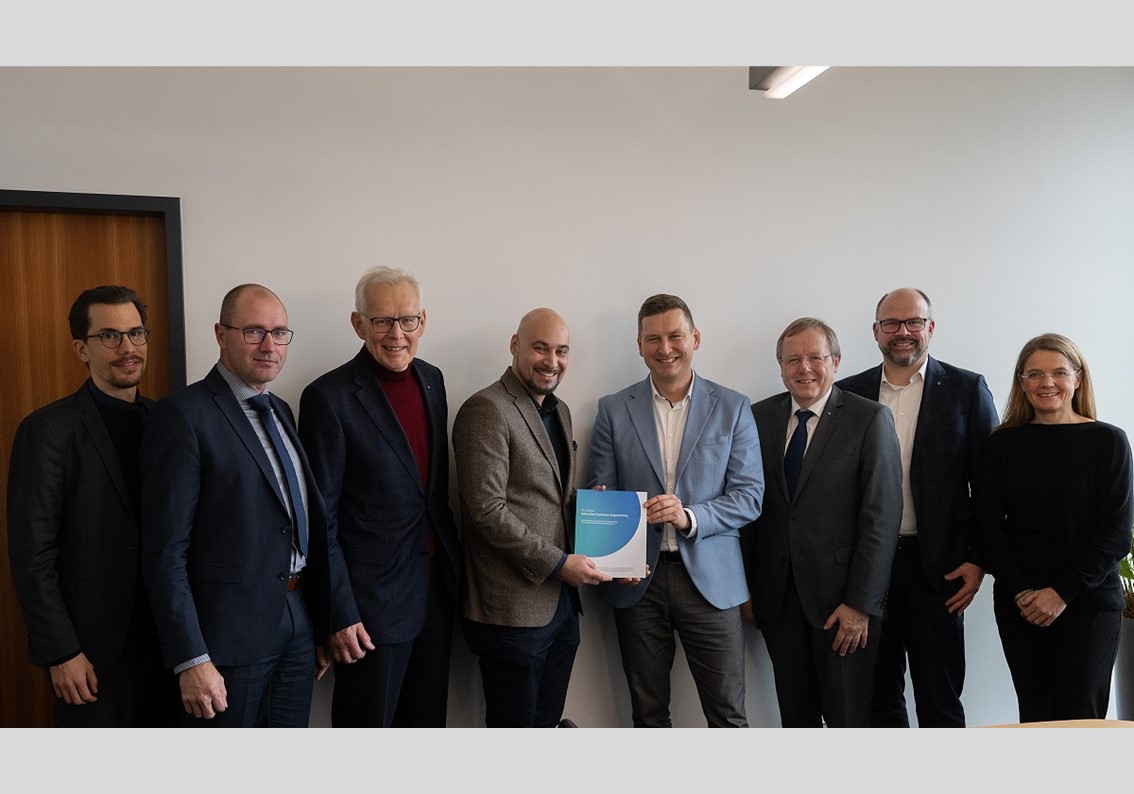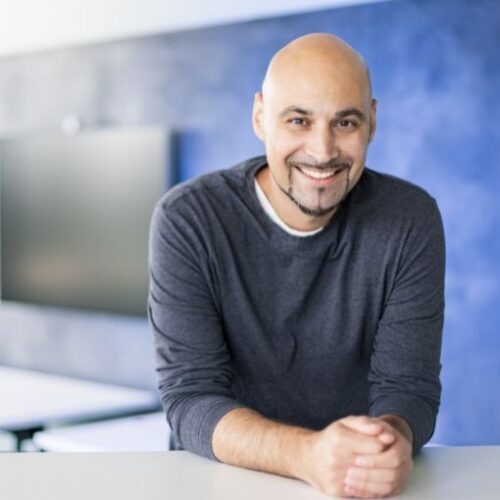Strategy to boost innovation system: making Germany as a location fit for the future with engineering excellence

Berlin, 08 December 2022
Companies must be in a position to develop complex technical and sociotechnical systems professionally and achieve go-to-market success quickly. According to an expert group that today submitted a paper to the Federal Ministry of Education and Research (BMBF), this requires a strategic realignment of the engineering. In the paper they show how this realignment of policy, enterprise and science can be introduced.
When it comes to competition between the leading developed markets, systems engineering is a key competence. Germany is losing ground in this respect. A rethink is required. The development of autonomous, interactive and dynamically networked products with an increasing proportion of software and service can only succeed with equally innovative engineering solutions. Enterprise and educational institutions must consider the big-picture interplay of human, organisation and technology the entire length of the innovation process. If they wish to set themselves up for the future, they need to use new methods and technologies as well as maximum creativity and agility.
This is where Advanced Systems Engineering (ASE) comes in: as a paradigm of engineering excellence, ASE represents a new perspective in planning, development and operation of the technical systems of tomorrow. ASE sets the course for sustainable value creation, employment, welfare and prosperity. Led by acatech – National Academy of Science and Engineering and based on a study funded by the Federal Ministry of Education and Research (BMBF), around 50 Systems Engineering academic and business experts have developed a strategy for putting the paradigm into practice. Notable members of the business and science community, such as Siegfried Russwurm (President of the Federation of German Industries (BDI), Christiane Benner (Second Chair of metalworkers’ union IG Metall) and Peter Liggesmeyer (scientific spokesperson of the Research Council Industrie 4.0) support the initiative.
Today in Berlin a delegation led by acatech President Jan Wörner presented the strategy to Parliamentary State Secretary to the Federal Minister of Education and Research Mario Brandenburg.
Sustainable, reliable, sovereign and successful in tomorrow’s markets

© ESA
Germany must remain competitive. Tackling the major transformational challenges such as digitalisation, sustainable development, mobility and energy supply requires engineering excellence. Systems “Made in Germany” must gain an edge by being sustainable and reliable in particular, and must be based on technological sovereignty. The requirements for engineering in the future are therefore enormous. Today we have presented a charter of objectives in which we show how the engineering situation should look. In this scenario, the optimum conditions result in Germany having a leading position in the engineering of technical and sociotechnical systems. This is achievable, albeit with great effort.
Jan Wörner, acatech President

© Fraunhofer IEM
It is the task of politics to create the conditions to increase the sharing of knowledge and experience in relation to ASE, to overcome the skills shortage and to advance technological sovereignty. Enterprises have to be the drivers and key stakeholders in the creation of market performance innovations. In science, we have to put the spotlight on the sustainability and reliability of complex sociotechnical systems and, in research and teaching, interact more with industry.
Roman Dumitrescu (Fraunhofer IEM), Director of the Product Development research unit
Broad alliance from business, science and politics: shaping the future through systems design
The strategy was derived from the results of the AdWiSE („Vernetzung der Akteure zur disziplinübergreifenden Entwicklung komplexer vernetzter soziotechnischer Systeme für die Wertschöpfung von morgen“) project. The project focuses on the creation of a network of stakeholders for the interdisciplinary development of complex networked sociotechnical systems for future value creation and is funded by the Federal Ministry of Education and Research (BMBF). The project consortium consists of acatech – National Academy of Science and Engineering, the Fraunhofer Institute for Industrial Engineering IAO, the Fraunhofer Institute for Mechatronic Systems Design IEM, the Fraunhofer Institute for Production Systems and Design Technology IPK and IPEK – Institute of Product Engineering at Karlsruhe Institute of Technology. The strategy that has been developed plots the course from today’s situation to a paradigm. As a starting point, an analysis of the current state of engineering in Germany was done and an international comparison was completed. The paradigm is based on a scenario drawn up by the project consortium for the year 2035.
Further information
Regarding the Advanced Systems Engineering strategy – Central initiative for the future of Germany as an engineering and innovation hub (in German)
Explanatory video Advanced Systems Engineering (in German)
Information on the funding initiative by the Federal Ministry of Education and Research (in German)


